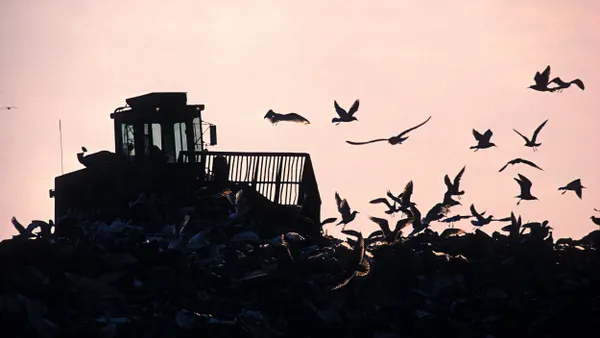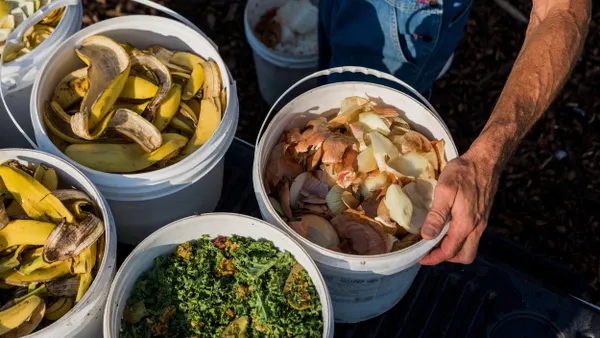Dive Brief:
- State lawmakers in New York's Senate and Assembly have introduced bipartisan legislation aimed at boosting surplus food donations with a donation tax credit, as reported by WXXI.
- The bills, S6083A and A8138, would cover grocery stores, food brokers, wholesalers, restaurateurs and catering companies that donated to local food pantries or food banks. The credit would apply to all "wholesome foods," including but not limited to fruits, vegetables, meat, poultry, eggs and dairy.
- As written, the legislation would allow donors to claim up to 25% of the wholesale value for donated items. Each donor could claim a cumulative $5,000 per taxable year. This policy would take effect in January 2019.
Dive Insight:
The official justification for this Senate bill cites a commonly used USDA statistic that showed $46.7 billion of food was wasted at the retail level in 2010. It also references a high percentage of food insecure New Yorkers and uses France as an example of good diversion policy. No mention is made of a proposed commercial organic waste diversion mandate that was lost amid the shuffle of budget negotiations earlier this year.
A recently released "Methane Reduction Plan" from Governor Andrew Cuomo's office listed food waste as a top priority for reducing landfill emissions and included improving donation infrastructure as a strategy. Following the diversion mandate failure, the state's Department of Environmental Conservation pointed to $3 million in funding for food donation and recycling projects as a sign of progress. A donation tax credit for farmers, with the same parameters as the one proposed for commercial generators, was also included in the budget.
Passing food waste diversion mandates has proven difficult for some state and local governments, though recent developments show more of an appetite for voluntary measures. Multiple state bills meant to encourage food donation recently moved forward in New Jersey and Virginia farmers will soon have the option to apply for a donation tax credit that covers up to 30% of fair market value. Vermont has also seen a significant spike in food donations recently — a 40% increase between 2015 and 2016 — though that was influenced in part by a landfill ban on organic waste.











